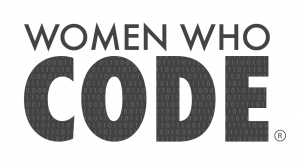WWCode was started many years ago to be a place for women in tech to come together, learn together, network and find likeminded people whilst getting the jobs they deserved for the pay they deserved. It’s mission has spanned many years and now is the world’s largest non-profit globally dedicated to women in technology.

How and When Did You First Get Into Tech?
I’ve always been in tech and grew up around it. I grew up in the 90s when we saw the real adoption of tech into everyday lives, becoming part of our ways of life, work and more. I studied Computer Science at university and became a software engineer, before I made D&I my full time role many years ago. I was and have always been passionate about creating, and tech allows me to do that.
What Are Some of the Main Challenges, and the Biggest Successes, Around Diversity That You’ve Experienced?
The main challenges is a lack of transparency, accountability and honesty. Companies will share lofty statements and pretty graphics but actually not change the policies and processes in the background, which very much need changed. This is because either 1) they don’t care or 2) they conflate passion for skillset and don’t know what and how to make changes. The successes come from the opposite – treating D&I work as part of your business strategy, staffing senior D&I roles accordingly, giving appropriate responsibility and enable embedding of accountability across business leaders. Things won’t change without that.
More from Interviews
- Meet Tobie Morgan Hitchcock, CEO & Co-Founder Of SurrealDB
- Meet Stephen Kines, COO And Co-Founder Of Goldilock
- Meet Henry Wilkinson, Co-Founder at Drop-in, Ahead Of The Opening Of Drop-in Richmond
- Meet Oli Cook, CEO and Founder of ekko.
- Meet Marko Maras, CEO and Founder of Trustfull
- Meet Jeff Warren, Chief Technology Officer at Netwrix
- Evgeny Filichkin, Investment Advisor at Keytom & FinTech50 Judge, Tells Us What He’s Looking For From Entrants
- Tracy Prandi-Yuen, VP, Global Partnerships at Boku Inc. & FinTech50 Judge, Tells Us What She’s Looking For From Entrants
Could You Tell Us a Bit About Your New Book? What Inspired You to Write It and What Is It About?
Demanding More is here to teach and shine a light on diversity and inclusion in a different way. It’s to educate us on why we’re in the position we’re now in, with positive and actionable steps to move forward.
All to often, people start with allyship, without recognising the real harm that people have caused deliberately and for me, that feels disingenuous. Each chapter is paired with a senior leader interview which brings to life all of the topics on bias, exclusion, privilege and how to plan for more. I want readers to take away actionable insights to start demanding more. I want them to recognise how nuanced this work is, regardless of whether you’re from an underrepresented background or not and to be able to take that knowledge and use it to implement powerful, sustainable change.
What Advice Would You Give to Aspiring Female Technologists?
Get ready for an exciting journey, always listen to your own voice and be prepared for bumps in the road. Whilst those bumps may be frustrating and stressful, keep your eye on the end game – remember that working in this field allows you to shape and create solutions that affect so many people and societies. Doing that is incredibly exciting and rewarding!



